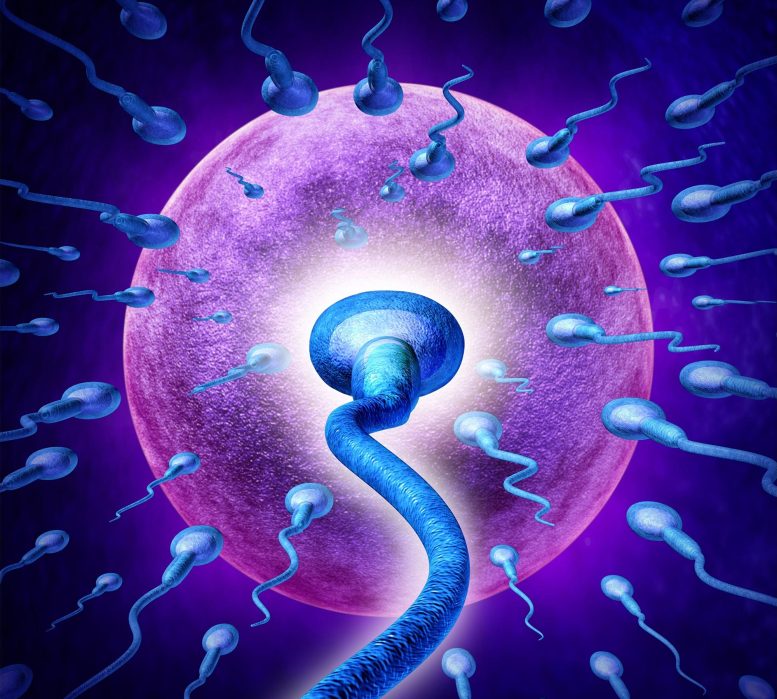
A research team from Oregon Health & Science University (OHSU) confirmed that chronic usage of THC, the psychoactive ingredient in cannabis, significantly affects male fertility and reproductive outcomes in nonhuman primates. However, discontinuing THC use can partially reverse these effects, improving male reproductive health, with a suggested minimum abstinence period of four months for better fertility outcomes.
The research builds on previous discoveries made by OHSU, indicating that persistent use of cannabis could potentially impair male fertility in animal studies. This will aid in advising patients about the implications of THC consumption when planning for conception.
Researchers from Oregon Health & Science University (OHSU) conducted a study in 2022 that confirmed the significant impact chronic cannabis use can have on male fertility and reproductive outcomes in nonhuman primates. However, whether these effects were permanent remained uncertain. In a recent development, the OHSU research team has now demonstrated that discontinuing THC use can at least partially counteract these effects. Their findings were recently published in the journal Fertility & Sterility.
This groundbreaking research is among the first to show that ceasing long-term THC use can partially restore the adverse effects on male reproductive health in nonhuman primates.
Delta-9-tetrahydrocannabinol, or THC, is the main psychoactive ingredient in cannabis, which is one of the most commonly used drugs among reproductive-age men in the United States and worldwide. Yet there is a significant lack of safety data around THC, and users may be unaware of its potentially harmful impacts on their reproductive health. This study aimed to gain a deeper understanding of the reversibility of these impacts, which can help providers more effectively counsel patients — especially those interested in conceiving — on risks and recommendations for THC use.
“It’s so important that we research, understand, and educate about the implications of THC on reproductive health, especially as use continues to increase among individuals of reproductive age and more states legalize cannabis,” said the study’s corresponding author Jamie Lo, M.D., M.C.R., associate professor of obstetrics and gynecology (maternal-fetal medicine), OHSU School of Medicine, and Division of Reproductive & Developmental Sciences at the Oregon National Primate Research Center, or ONPRC.
“These findings are important because we can now more confidently assure patients that by abstaining from THC for at least four months, the impacts of THC on male fertility can be partly reversed,” Lo said. “This allows for more concrete, informed recommendations for patients who are in the process of family planning or actively trying to conceive.”
The research involved a multidisciplinary team including Carol Hanna, Ph.D., director of the Assisted Reproductive Technology Core at ONPRC at OHSU, and researchers from the University of Georgia and Duke University.
In a model using nonhuman primates, researchers administered THC in progressive doses over a period of about seven months, looking specifically at changes to the tissue of the male subjects’ reproductive health organs and testes, as well as the quantity and quality of their sperm. Analyses showed that THC exposure caused a significant reduction in the size of the testes and impacted male productive hormones, both of which negatively impact overall fertility. In addition, THC exposure impacted the sperm, altering the regulation of genes important for nervous system development, including those linked to autism spectrum disorder.
Interestingly, after discontinuing THC exposure over a period of about four months, researchers discovered these adverse effects were partially reversed, indicating that damage from chronic THC use can be partially restored.
Though further research is needed to fully understand the biological mechanism of this reversal process, the study offers a comprehensive initial understanding of the benefit of discontinuing THC use as a part of family planning, and also provides some insight into the minimum duration of abstinence from THC needed to repair damage after chronic use. These findings can also inform providers on how to more effectively counsel patients on cannabis use prior to attempting to conceive.
“We understand that for teens and young adults, family planning might not be top of mind. However, THC even in moderate doses could impact their fertility outcomes, so this is a serious concern for us as healthcare providers,” said Jason C. Hedges, M.D., Ph.D., associate professor of urology in the OHSU School of Medicine, Division of Reproductive & Developmental Sciences at ONPRC, and the study’s lead author. “The more we can understand and define this issue, the better information we can provide to patients to be able to optimize their reproductive health.”
Looking forward, the team will continue to expand their understanding of the relationship between THC and reproductive health. Ongoing research efforts will focus on the effects of chronic THC use over long periods of time and through various modes, such as vaping, as well as investigating the impacts of THC on fetal and offspring development.
Reference: “Cessation of chronic delta-9-tetrahydrocannabinol use partially reverses impacts on male fertility and the sperm epigenome in rhesus macaques” by Jason C. Hedges, Carol B. Hanna, Lyndsey E. Shorey-Kendrick, Emily R. Boniface, Jasper C. Bash, Travis L. Rice-Stitt, Fernanda C. Burch, Rahul D’Mello, Terry K. Morgan, Ana Cristina Lima, Juanito Jose D. Terrobias, Jason A. Graham, Emily C. Mishler, Jared V. Jensen, Olivia L. Hagen, J. Wes Urian, Eliot R. Spindel, Charles A. Easley, Susan K. Murphy and Jamie O. Lo, 27 March 2023, Fertility and Sterility.
DOI: 10.1016/j.fertnstert.2023.02.034
This work is supported by the American Society for Reproductive Medicine Pilot and Exploratory grant, NIH P51 OD011092, NIH R01 OD028223-01, RSDP NIH/NICHD K12 HD000849, NIH/NIDA DP1 DA056493-01, Oregon Health & Science University Medical Research Foundation Award, Oregon Health & Science University Exploratory Research SEED Grant, and the Silver Family Innovation Fund.









Be the first to comment on "Using Cannabis Can Worsen Male Fertility – But Are the Effects Permanent?"